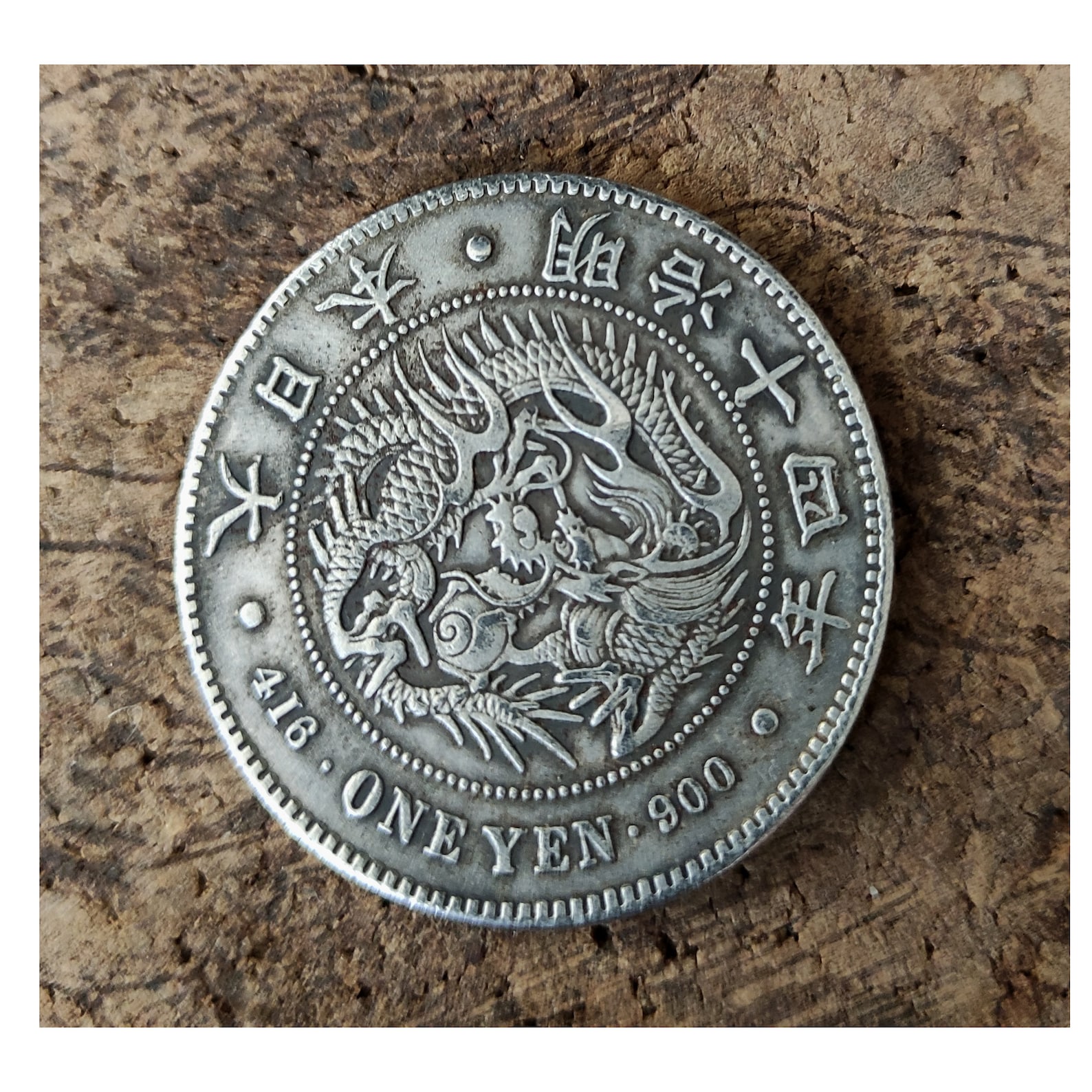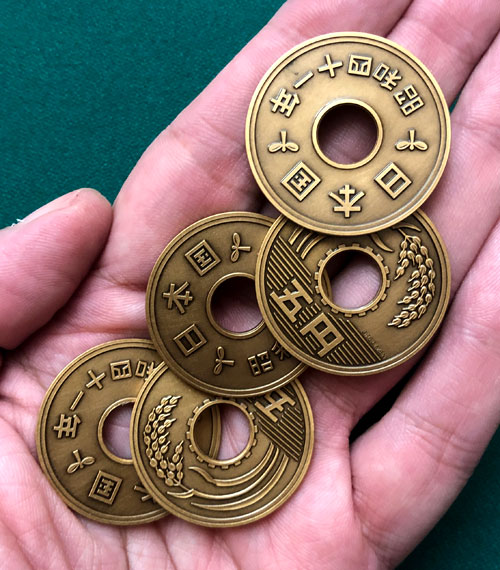
Although this stopped the flood of South Korean coins into Japan the changeover to the new coin cost both the Mint of Japan and the domestic vending machine industry a significant amount of money to make the appropriate changes. The addition of some zinc created a different electronic signature detectible by coin acceptance devices in Japan. The problem persisted until 2000 when Japan introduced a copper-nickel-zinc 500 yen. Photo: Wikipedia.Ĭonsidering the close proximity of the two countries it didn’t take long before the South Korean coins began appearing in vending machines in Japan.
#Japanese coins free
The next time you visit a shrine or temple, feel free to use a 5 yen coin to be part of this urban myth, but remember that whatever the amount may be, keep a sincere heart and an honest heartfelt prayer.Japan 500 Yen, new version. So there it is, the myth of the 5 yen coin which continues up until today. Interestingly, the belief of this 5 yen coin urban myth has carried its meaning on to other currency amounts as well.Ĭonsequently, using the 10 yen coin is believed to push good luck further away from you since the number 10 can be read as “too” (十) in Japanese, which sounds the same as 遠, meaning “far”, thus pushing good luck further away from you. More than how much money you offer, if you use 5 yen coins or 10,000 yen note, what carries the power of your prayer is your heart and emotion, or “kokoro” in Japanese. Of course, as several shinto priests and Buddhist monks may point out, the amount offered has no effect on the outcome of your prayers, but the emotion and sincerity while performing it does. Therefore, by using this coin while praying to the shinto gods or Buddhist deities, it is believed that it shall help one to have a good connection with them and therefore find that which they are looking to achieve. It usually denotes the connection between people and objects and how they enhance their existence not by a particular doing but by chance. 5 yen is “go-en” (五円) in Japanese, which sounds the same as ご縁, which means “fate” or “chance” in the sense of finding something appealing by chance, such as an unexpected encounter or a beautiful piece of furniture. The main reason for the particular usage of this coin when praying at shrines or temples is because of its pronunciation in Japanese. From all these aspects, lets now focus on the one relating the usage of the 5 yen coin. Whether it be a long term stay or a short term stay, the richness of the Japanese culture shall certainly leave a mark on each traveler.


Some may also be experiences daily at any of our share house, guest house or apartment units, such as taking your shoes at the “genkan” entrance or neatly separating the garbage. Many you may encounter yourself while walking around the streets of Tokyo or visiting the many tourist destinations of Kyoto.

But why is this?ĭuring a stay in Japan there shall be many aspects to discover about the Japanese culture. On our recent Sakura Tips regarding manners at shrines and temples, we mentioned that when making an offering prior to praying, it is usual to see people using the 5 yen coin.


 0 kommentar(er)
0 kommentar(er)
